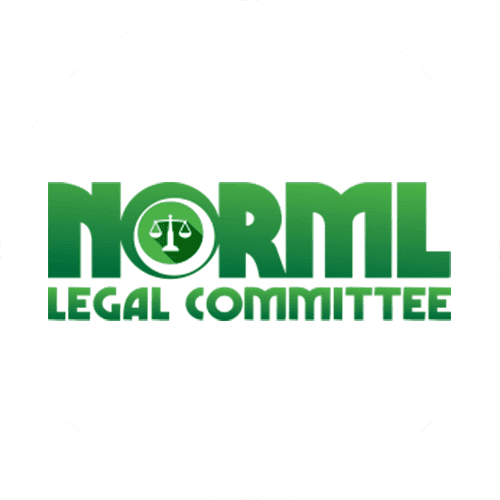Texas Penal Code § 28.01(3) defines property as meaning real property; tangible or intangible personal property, including anything severed from land; or a document, including money, that represents or embodies anything of value. Title 7 of the Texas Penal Code is dedicated to offenses against property.
Many of the most frequently charged crimes are found in Chapters 28 (arson, criminal mischief, and other property damage or destruction), 29 (robbery), and 30 (burglary and criminal trespass). Other chapters in this title deal with theft crimes, fraud, computer crimes, telecommunications crimes, money laundering, insurance fraud, and health care fraud.
If you were recently arrested for a property crime in Parker County, it is going to be important for you take the need for legal representation seriously. Do not wait another moment to find yourself a criminal defense lawyer for your case.
The Law Offices of Richard C. McConathy understands how to effectively defend people against all kinds of property crimes and we know from experience how to help people overcome these kinds of criminal charges. We can tell you in greater detail how we would handle your case if you call (817) 458-3226 or contact our firm online to schedule a free consultation.
Property Crime Charges in Parker County
Under Texas Penal Code § 28.02, a person commits an arson offense if the person starts a fire, regardless of whether the fire continues after ignition, or causes an explosion with intent to destroy or damage:
- any vegetation, fence, or structure on open-space land; or
- any building, habitation, or vehicle:
- knowing that it is within the limits of an incorporated city or town;
- knowing that it is insured against damage or destruction;
- knowing that it is subject to a mortgage or other security interest;
- knowing that it is located on property belonging to another;
- knowing that it has located within it property belonging to another; or
- when the person is reckless about whether the burning or explosion will endanger the life of some individual or the safety of the property of another.
A person also commits an arson offense if the person recklessly starts a fire or causes an explosion while manufacturing or attempting to manufacture a controlled substance and the fire or explosion damages any building, habitation, or vehicle. A person also commits an offense if the person intentionally starts a fire or causes an explosion and in so doing recklessly damages or destroys a building belonging to another; or recklessly causes another person to suffer bodily injury or death.
An offense under Texas Penal Code § 28.02(a) is a second-degree felony, except that the offense is a first-degree felony if it is shown on the trial of the offense that:
- bodily injury or death was suffered by any person by reason of the commission of the offense; or
- the property intended to be damaged or destroyed by the actor was a habitation or a place of assembly or worship.
An
An offense under Texas Penal Code § 28.02(a-1) is a state jail felony, except that the offense is a third-degree felony if it is shown on the trial of the offense that bodily injury or death was suffered by any person by reason of the commission of the offense. An offense under Texas Penal Code § 28.02(a-2) is a state jail felony.
A person commits a criminal mischief offense under Texas Penal Code § 28.03 if, without the effective consent of the owner:
- They intentionally or knowingly damage or destroy the tangible property of the owner;
- They intentionally or knowingly tamper with the tangible property of the owner and causes pecuniary loss or substantial inconvenience to the owner or a third person; or
- They intentionally or knowingly make markings, including inscriptions, slogans, drawings, or paintings, on the tangible property of the owner.
Criminal mischief is classified as:
Class C misdemeanor if:
- the amount of pecuniary loss is less than $100; or
- except as provided in Subdivision (3)(A) or (3)(B), it causes substantial inconvenience to others;
Class B misdemeanor if the amount of pecuniary loss is $100 or more but less than $750;
Class A misdemeanor if:
- the amount of pecuniary loss is $750 or more but less than $2,500; or
- the alleged offender causes in whole or in part impairment or interruption of any public water supply, or causes to be diverted in whole, in part, or in any manner, including installation or removal of any device for any such purpose, any public water supply, regardless of the amount of the pecuniary loss;
State jail felony if the amount of pecuniary loss is:
- $2,500 or more but less than $30,000;
- less than $2,500, if the property damaged or destroyed is a habitation and if the damage or destruction is caused by a firearm or explosive weapon;
- less than $2,500, if the property was a fence used for the production or containment of cattle, bison, horses, sheep, swine, goats, exotic livestock, or exotic poultry; or game animals as that term is defined by Section 63.001, Parks and Wildlife Code; or
- less than $30,000 and the alleged offender causes wholly or partly impairment or interruption of property used for flood control purposes or a dam or of public communications, public transportation, public gas or power supply, or another public service; or causes to be diverted wholly, partly, or in any manner, including installation or removal of any device for any such purpose, any public communications or public gas or power supply;
Third-degree felony if:
- the amount of the pecuniary loss is $30,000 or more but less than $150,000; or
- the alleged offender, by discharging a firearm or other weapon or by any other means, causes the death of one or more head of cattle or bison or one or more horses;
- Second-degree felony if the amount of pecuniary loss is $150,000 or more but less than $300,000; or
- First-degree felony if the amount of pecuniary loss is $300,000 or more.
Texas Penal Code § 28.04 establishes that a person commits a reckless damage or destruction offense if, without the effective consent of the owner, they recklessly damage or destroy property of the owner. An offense is a Class C misdemeanor.
A person commits a graffiti offense under Texas Penal Code § 28.08 if, without the effective consent of the owner, the person intentionally or knowingly makes markings, including inscriptions, slogans, drawings, or paintings, on the tangible property of the owner with:
- paint;
- an indelible marker; or
- an etching or engraving device.
An offense is classified as:
- Class C misdemeanor if the amount of pecuniary loss is less than $100;
- Class B misdemeanor if the amount of pecuniary loss is $100 or more but less than $750;
- Class A misdemeanor if the amount of pecuniary loss is $750 or more but less than $2,500;
- State jail felony if the amount of pecuniary loss is $2,500 or more but less than $30,000;
- Third-degree felony if the amount of pecuniary loss is $30,000 or more but less than $150,000;
- Second-degree felony if the amount of pecuniary loss is $150,000 or more but less than $300,000; or
- First-degree felony if the amount of pecuniary loss is $300,000 or more.
A person commits robbery under Texas Penal Code § 29.02 if, in the course of committing theft as defined in Chapter 31 and with intent to obtain or maintain control of the property, they intentionally, knowingly, or recklessly causes bodily injury to another; or intentionally or knowingly threatens or places another in fear of imminent bodily injury or death. This is a second-degree felony.
Aggravated robbery under Texas Penal Code § 29.03 involves a person committing robbery as defined in Section 29.02, and causing serious bodily injury to another; using or exhibiting a deadly weapon; or causing bodily injury to another person or threatening or placing another person in fear of imminent bodily injury or death, if the other person is 65 years of age or older; or a disabled person. This is a first-degree felony.
Under Texas Penal Code § 30.02, a person commits a burglary offense if they, without the effective consent of the owner, enter a habitation, or a building (or any portion of a building) not then open to the public, with intent to commit a felony, theft, or an assault; remain concealed, with intent to commit a felony, theft, or an assault, in a building or habitation; or enter a building or habitation and commit or attempt to commit a felony, theft, or an assault. An offense could be a state jail felony, third-degree felony, or first-degree felony.
A person commits a criminal trespass offense under Texas Penal Code § 30.05 if the person enters or remains on or in property of another, including residential land, agricultural land, a recreational vehicle park, a building, or an aircraft or other vehicle, without effective consent and the person had noticed that the entry was forbidden; or received notice to depart but failed to do so. This may be a Class C misdemeanor or Class A misdemeanor.
Most property crimes in Dallas require the alleged offender to have some element of intent or knowledge they were committing the offense. In order to convict the alleged property offender of their crime, the state prosecutor must prove beyond a reasonable doubt the alleged offender had the intent to commit the crime, the knowledge they were committing the offense, or acted recklessly when committing the crime. These elements are subjective and can be very difficult for the prosecutor to prove, as they are different for every person and not established by hard evidence.
As defined in Texas Penal Code § 6.03, the most common property crime mental states are:
- Intentionally – An individual acts intentionally if they commit a crime and they have the conscious objective or desire to engage in the conduct or cause the result of the conduct.
- Knowingly – An individual acts knowingly, or with knowledge, if they commit a crime and are aware their conduct is reasonably certain to cause the intended result of the conduct.
- Recklessly – An individual acts recklessly when they commit a crime if they are aware of their conduct or the likely result of the conduct, but they consciously disregard the possibility the result will occur.
- A person acts with criminal negligence, or is criminally negligent, with respect to circumstances surrounding his conduct or the result of his conduct when he ought to be aware of a substantial and unjustifiable risk that the circumstances exist or the result will occur. The risk must be of such a nature and degree that the failure to perceive it constitutes a gross deviation from the standard of care that an ordinary person would exercise under all the circumstances as viewed from the alleged offender’s standpoint.
Property Crime Penalties in Weatherford
The penalties for property crimes in Texas are listed in Chapter 12 of the Texas Penal Code. However, these basic statutory penalties can increase, depending on where the offense occurred, the value of the damage, whether the alleged offender has any previous criminal history, and whether a weapon was used during the commission of the offense.
- A conviction for a Class C misdemeanor property crime can result in a fine up to $500.
- A conviction for a Class B misdemeanor property crime can result in a jail sentence up to 180 days and/or a fine up to $2,000.
- A conviction for a Class A misdemeanor property crime can result in a jail sentence up to one year and/or a fine up to $4,000.
- A conviction for a state jail felony property crime can result in a jail sentence ranging from 180 days to two years and/or a fine up to $10,000.
- A conviction for a third-degree felony property crime can result in a prison sentence ranging from two to ten years and/or a fine up to $10,000.
- A conviction for a second-degree felony property crime can result in a prison sentence ranging from two to 20 years and/or a fine up to $10,000.
- A conviction for a first-degree felony property crime can result in a prison sentence ranging from five to 99 years or life imprisonment and/or a fine up to $10,000.
Occasionally, defenses may be available to individuals that have been charged with property crimes in Dallas. It is important to fist consult with your experienced criminal defense attorney to help you determine whether any defense is applicable in your particular situation.
- Duress – An alleged offender may be able to use this defense if they were threatened by another person they would be harmed or a third party would be harmed if they did not commit the offense.
- Justification – An alleged offender may be able to use this defense if they committed an act that would otherwise by a criminal offense in an emergency situation in order to prevent public or private harm.
- Reasonable Belief – An alleged offender may be able to use this defense if they reasonably believed they had the owner’s permission to use the owner’s property or enter the property.
- Renunciation – An alleged offender may be able to use this defense if they withdrew from participating in the act before the act was committed and made substantial efforts to prevent the act from occurring.
Weatherford Property Crime Resources
Property Crime – Bureau of Justice Statistics (BJS) — Visit this BJS page on property crime. The National Crime Victimization Survey (NCVS) measures the property crimes of burglary/trespassing, motor-vehicle theft, and property theft. Because the survey information is obtained from a sample of households, it does not include property crimes affecting businesses or other commercial establishments. If these crimes are reported to the police, they are included in the FBI’s Uniform Crime Reports (UCR). NCVS includes property crimes affecting victims and household members that were not reported to the police.
Motor Vehicle Crime Prevention Authority | TxDMV.gov — Learn how to protect your vehicle and what to do if your vehicle is stolen in Texas. Also read about avoiding buying a stolen vehicle. There is also information about the top 10 most stolen vehicles.
Find a Property Crime Lawyer in Weatherford, TX | Law Office of Richard C. McConathy
Were you arrested for a property crime in the Weatherford area? You absolutely must take the need for legal counsel seriously and find yourself the help you need right away.
The Law Offices of Richard C. McConathy will work as hard as we can to help you overcome your criminal charges and move on with your life. We can get started on your case as soon as you call (817) 458-3226 or contact us online to set up a free consultation.











